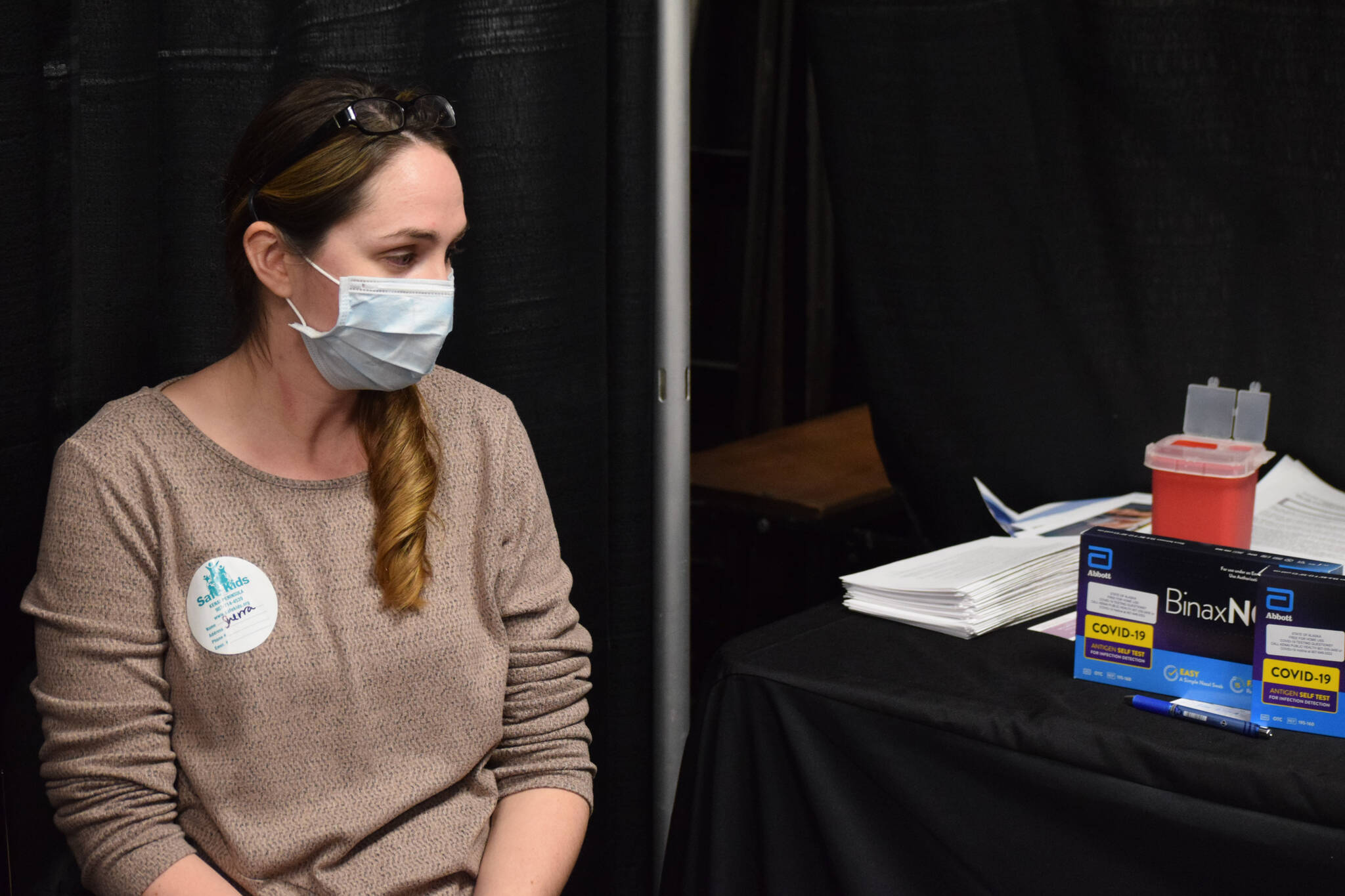Social service agencies and community organizations gathered at the Soldotna Regional Sports Complex on Wednesday to provide support to the central peninsula’s vulnerable populations during the annual Project Homeless Connect event.
The event drew about 60 people in person, representing approximately 100 peninsula residents, organizer Jodi Stuart said after the event.
Natalie Merrick is a screener and counselor at the Independent Living Center, which serves people with disabilities. She said she knows firsthand how necessary it is to provide services for people at risk of housing instability.
She benefited from the same services when she was experiencing homelessness, she said.
Merrick said she was struggling with substance abuse while she was unhoused and couch surfing. She even lived out of a tent for a while.
“When you’re homeless, you’re dealing with all sorts of different factors, but the biggest one is probably the stigma,” Merrick said. “It can be embarrassing going places when you don’t smell good, or you haven’t had a shower.”
Merrick said she remembers the feeling of people not wanting to hug her during that time.
But the hardships of her past, she said, make the Project Homeless Connect event all the more fulfilling.
“I think the thing I like most about it is people are treated with dignity and respect,” Merrick said. “It’s huge. And when people are treated with dignity and respect, miracles can happen.”
Services available at the event ranged from health screenings to spiritual guidance to a home-cooked meal.
Leslie Rohr, the director of the Christian social service provider Love INC, said the housing instability issue on the peninsula stems from a number of issues.
“There are people who have been couch surfing; we still have a few coming through that have been in vehicles or dry cabins that are not really meant for full-time habitation,” Rohr said.
A lot of the work Love INC and other service providers do is preventative, she said. Working with local landlords when tenants have overdue payments is just one of the ways the agency helps those at risk of housing instability.
“We want to keep people housed because once they have an eviction, it becomes more difficult,” Rohr said.
Kathy Gensel, the director for the Central Peninsula Health Foundation, said the wide array of services offered at Wednesday’s event maximized the benefits for participants.
“I think it goes back to, you know, every agency doesn’t have to do everything,” Gensel said. “The collaboration between the agencies and the resources I think just help to build a stronger-resourced community for that population that we’re helping to serve.”
The chaplain at Central Peninsula Hospital, Frank Alioto, echoed similar praise. He said not just social service providers, but also volunteers, are drawn to Project Homeless Connect.
“Some have come here because it was their job, and now they come here because they still serve,” Alioto said. “Some have taken the day off to be here, just to volunteer and give them their time and connect in our community.”
Also playing a part in the event are those who routinely interact with the demographic Project Homeless Connect seeks to serve — such as the local cab company and police.
“(It) gives tangible opportunities for a lot of people,” Alioto said.
Sherra Pritchard, a Kenai Public Health nurse, said during the event that the COVID-19 has been especially hard for people facing homelessness.
“COVID has been quite isolating for folks, and so to be able to see people in person and have a one-stop-shop for all their needs, I think that’s really important,” Pritchard said.
She and the Kenai Public Health team were administering Pfizer-BioNTech COVID vaccines for both adults and pediatric patients, as well as influenza shots. At-home COVID tests were also available for participants in Wednesday’s event.
“There are really lots of socially complex issues in our world right now, and you know, no one’s immune to homelessness either,” Pritchard said. “It’s nice to be able to help folks.”
Merrick said she’s no stranger to feeling overwhelmed by the realities of homelessness, and needing to seek help.
After her own struggles with housing instability, Merrick said she decided to seek long-term treatment for addiction and outpatient counseling. Re-entering the workforce was difficult while juggling the trials of recovery and a former felony conviction, but after help from her sponsor, her probation officer and her family, she was able to secure a job at the LeeShore Center supporting victims of domestic violence and sexual assault. Later, she moved to the Independent Living Center.
“I know what it’s like to have less than $1 in my bank account,” Merrick said. “I think people like a comeback story and I think that people love seeing folks thriving and doing better, and (it) just makes me want to give back more, and be that bridge.”
Reach reporter Camille Botello at camille.botello@peninsulaclarion.com.

